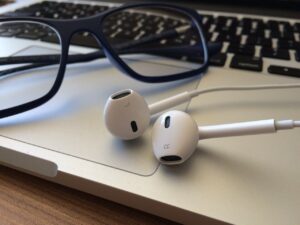As of the 3rd of April, 2020, more than 1 million people are infected with COVID-19 globally. Here at home, we have 245,573 positive tests, and 6,058 people have died. Hundreds of millions of people, including those in the addiction recovery community, continue to self-quarantine and practice social distancing. Our new way of life is anything but easy and coping with what is going on has been tremendously challenging for some.
At PACE Recovery Center, we hope you are managing as best you can despite the severe life changes we have all had to make. As you are probably aware by now, significant alterations to one’s life are ill-advised in early addiction recovery. Many people lack the ability to adjust to drastic changes, which can put their recovery at risk.
As we mentioned last week, it’s vital that you do everything in your power to continue putting your recovery first. Keep the finger on the pulse of your mental health, and never hesitate to reach out to peers for support. We are all in this together and we are physically cut off from one another.
You still have resources at your disposal that, if utilized, will safeguard your mental well-being. Attending 12 Step meetings via video-conferencing platforms can be instrumental in keeping your recovery intact.
With all the downtime we have now, you can seek out inspirational and supportive online texts and podcasts. In fact, millions of people are listening to a new podcast that can potentially be of significant service to you.
Unlocking Us
Just over a week ago, Brené Brown Ph.D., a professor at the University of Houston, launched a podcast called Unlocking Us. In only one day, it became the most listened-to podcast in America, 60 Minutes reports. The best-selling author’s podcast is meant to help people cope with the pandemic and its byproduct—anxiety and disconnection.
Professor Brown has a Ph.D. in social work and has been studying human emotions and behaviors for decades. Over the course of her career, she has collected much data and has gained great insight into the human need for connection.
Naturally, this pandemic has cut off everyone from personal contact and significantly impacted the lives of those who require it the most. Brené Brown sat down with 60 Minutes correspondent Bill Whitaker last weekend to discuss her work and weigh in on the global public health crisis.
She explains the importance of communicating with one another, especially during this unprecedented event. She points out how crucial it is that we help each other. Moreover, Brown says, “we are neuro-biologically hardwired to be in connection with other people.” With that in mind and amid a pandemic, she adds:
We don’t know how to do this. And by this I mean, we don’t know how to social distance and stay sane, we don’t know how to stay socially connected but far apart. We don’t know what to tell our kids. We’re anxious, we’re uncertain, we are a lot of us afraid. And let me tell you this for sure, and I know this from my life, I know this, from again, from 20 years of research, and 400,000 pieces of data. If you don’t name what you’re feeling, if you don’t own the feelings, and feel them, they will eat you alive.”
Coping in Recovery When You are Feeling Vulnerable
All of us cannot help but feel a sense of vulnerability to this chaotic and uncertain time. It’s okay to feel vulnerable; “to be alive is to be vulnerable,” according to Dr. Brown. She tells Whitaker that she has asked tens of thousands of people the question, “What is vulnerability to you?” To which he responds by saying how many of us link vulnerability to weakness. Brown countered by saying:
Definitely. Bad mythology. Vulnerability is not weakness. It’s the only path to courage. Give me a single example of courage that does not require uncertainty, risk, or emotional exposure. No one, in 50,000 people, not a person has been able to give me an example of courage that did not include those things. There is no courage without vulnerability.”
Fortunately, those of you in the recovery community are not alone even if we cannot hold hands or embrace each other currently. We have experience with feeling vulnerable, and the emotion was one of the catalysts for changing our lives for the better.
Still, you are not immune to being uncomfortable with uncertainty and disconnection. It’s ever necessary to keep utilizing your coping tools and take advantage of the digital resources available to help you manage. On top of Unlocking Us, Brown has several TED Talks you can watch that can prove helpful. She also has many books that could be helpful to you as well while continuing to weather the storm that is COVID-19.
Please take a moment to watch her interview:
If you are having trouble watching, please click here.
Finding Recovery During A Crisis
PACE Recovery Center is a gender-specific treatment for men who are struggling with addiction and mental health disorders. Even though there is a global health crisis, we are following CDC protocols and continue to accept clients. We invite you to reach out to us to learn more about our programs and begin the journey of lasting recovery.



